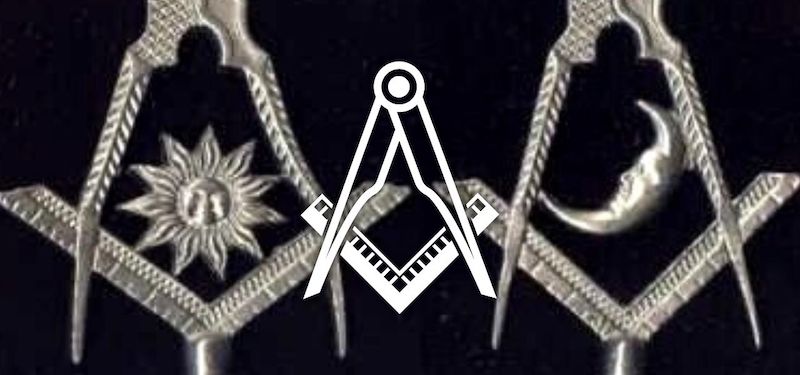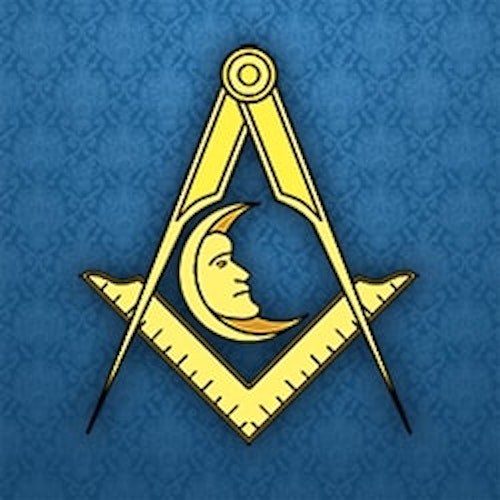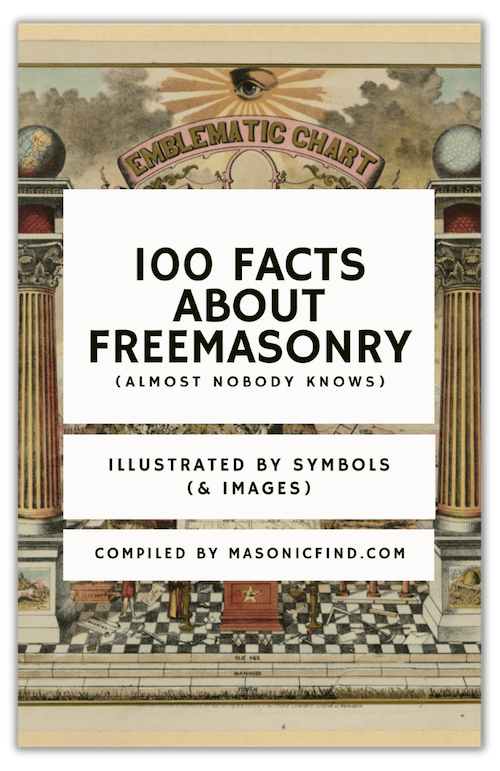Eyebrows raise sometimes when non-Masons hear of the offices of the Deacons (especially if such conversations are had at church meetings); after all, Freemasonry is not a religion nor a substitute for one.
So what are the roles of the Deacons in the Lodge?
Deacons act as messengers and assistants to the Worshipful Master and Senior Warden of the Lodge and assist them in carrying out their various duties.
It should be noted that the duties of the Deacons may vary from Grand Lodge jurisdiction to Grand Lodge jurisdiction; this article is written from the perspective of a Mason from the Grand Lodge F&AM of Utah and may therefore be completely different for any reader located within the geographical boundaries of a different Grand Lodge.

Assistants
The term deacon etymologically means servant.
In the Grand Lodge jurisdictions with which I am familiar, deacons in Masonry serve the Worshipful Master and the Senior Warden (kind of like administrative assistants).
Messengers
The Senior Deacon is said to “carry messages from the Worshipful Master in the East to the Senior Warden in the West and elsewhere about the Lodge as ordered.”
The Junior Deacon is likewise said “to carry messages from the Senior Warden in the West to the Junior Warden in the South and elsewhere about the Lodge as directed.”
The message here can denote “any notice, word or communication, written or verbal,” as defined in Noah Webster in his 1828 American Dictionary of the English Language (under the entry “Message”).
As an example of this, I have personally had the Deacons disperse copies of official, written communications from Grand Lodge officers to my Lodge so that they could be read aloud during the Lodge meeting (since it is often required for such communications to be read aloud during such meetings).
Senior Deacon
In addition to the duty listed above, the Senior Deacon is also responsible for receiving and conducting candidates, introducing visiting Brethren, and attending the altar.
Attending All Alarms at the Door of the Preparation Room
The Preparation Room is where the Candidate is prepared for his degree ceremony.
Once the Candidate is prepared, an alarm is made at the door, which informs the Lodge that the Candidate is prepared for initiation, passing, or raising.
It is the duty of the Senior Deacon to attend to that alarm and then to inform the Worshipful Master and the Lodge accordingly.
Receiving and Conducting Candidates
This goes hand-in-hand with the preceding duty; after the Senior Deacon duly attends the alarm at the door of the Preparation Room and informs the Worshipful Master and Lodge thereof.
It then becomes the responsibility of the Senior Deacon to conduct the Candidate about the Lodge; this duty lasts for the entire degree ceremony. The Candidate is never left alone.
(It should be noted here that at least a few Grand Lodge jurisdictions have a separate office for this duty, called a Guide).
Introducing Visiting Brethren
In some Grand Lodge jurisdictions, it is a Masonic right to be able to visit another Lodge; in others, it is a privilege.
Either way, it is common for a Lodge to receive visitors from other areas of the world. My own Lodge has received visitors from all over the United States, as well as from Greece and Australia.
Here it is the duty of the Senior Deacon (shared with the Marshal) to introduce these visiting Brethren to the Worshipful Master and Lodge.
Attending the Altar
The Altar is to be set up in a certain manner for the duration of each communication (meeting).
It is the responsibility of the Senior Deacon to set up the altar as required at the opening of the meeting as well as to return the altar to how it was once the meeting is over.
The Duties of the Marshal
If the Marshal does not attend or if the Lodge does not have a Marshal, then all the duties of the Marshal become those of the Senior Deacon.
The Most Fun
From what I hear, this office is the most fun of them all. Unfortunately, I was the Senior Deacon of my Lodge when the COVID-19 pandemic hit, so I was not able to experience the duties of that office as I would have liked.
However, given that this is the office in which one interacts most with Candidates (new members), interacts most with visitors, and is the most active officer role during degree ceremonies (being with the Candidate most or the whole time), it only makes sense that this should be the most enjoyable office in Masonry.
Junior Deacon

Attending All Alarms at the Door
Sometimes a Mason may show up late to a meeting. He should, in such a situation, make an alarm at the door, at which point the Junior Deacon attends the alarm and ascertains who is there.
The Junior Deacon then should inform the Worshipful Master who is at the door and ask if the Brother outside may enter.
Seeing that the Lodge is Tyled
The Tyler (or Tiler) is the Brother who guards the Lodge meeting against the approach/presence of cowans (trespassers) and eavesdroppers.
It is the duty of the Junior Deacon to ensure that the Tyler knows what degree of Masonry is being used for the meeting, which (in turn) allows the Tyler to know how Masons who arrive late should be tested.
Filling In
The Senior Deacon should be ready at a moment’s notice to fill in for the Junior Warden during a meeting as needed.
Likewise, the Junior Deacon should be ready at a moment’s notice to fill in for the Senior Deacon during a meeting.

FREE DOWNLOAD: 100 FACTS ABOUT FREEMASONRY (ALMOST NOBODY KNOWS)
Join the 10,000+ Brethren from around the world inside our weekly Masonic newsletter and get our best selling ebook for free (usual value: $20).
Conclusion
In practice, the Deacons are just as vital to Masonry in general as the Master and Wardens, in my opinion. They can do so much to help further the interests of the Craft and, therefore, the community in general.
I loved being a Junior Deacon, and I am glad that I got to experience (even for a month prior to the pandemic) being a Senior Deacon. If you are about to be appointed to these offices, then you have a fun time ahead of you.
This article was written for MasonicFind.com by WM-Elect Brandon Cole.